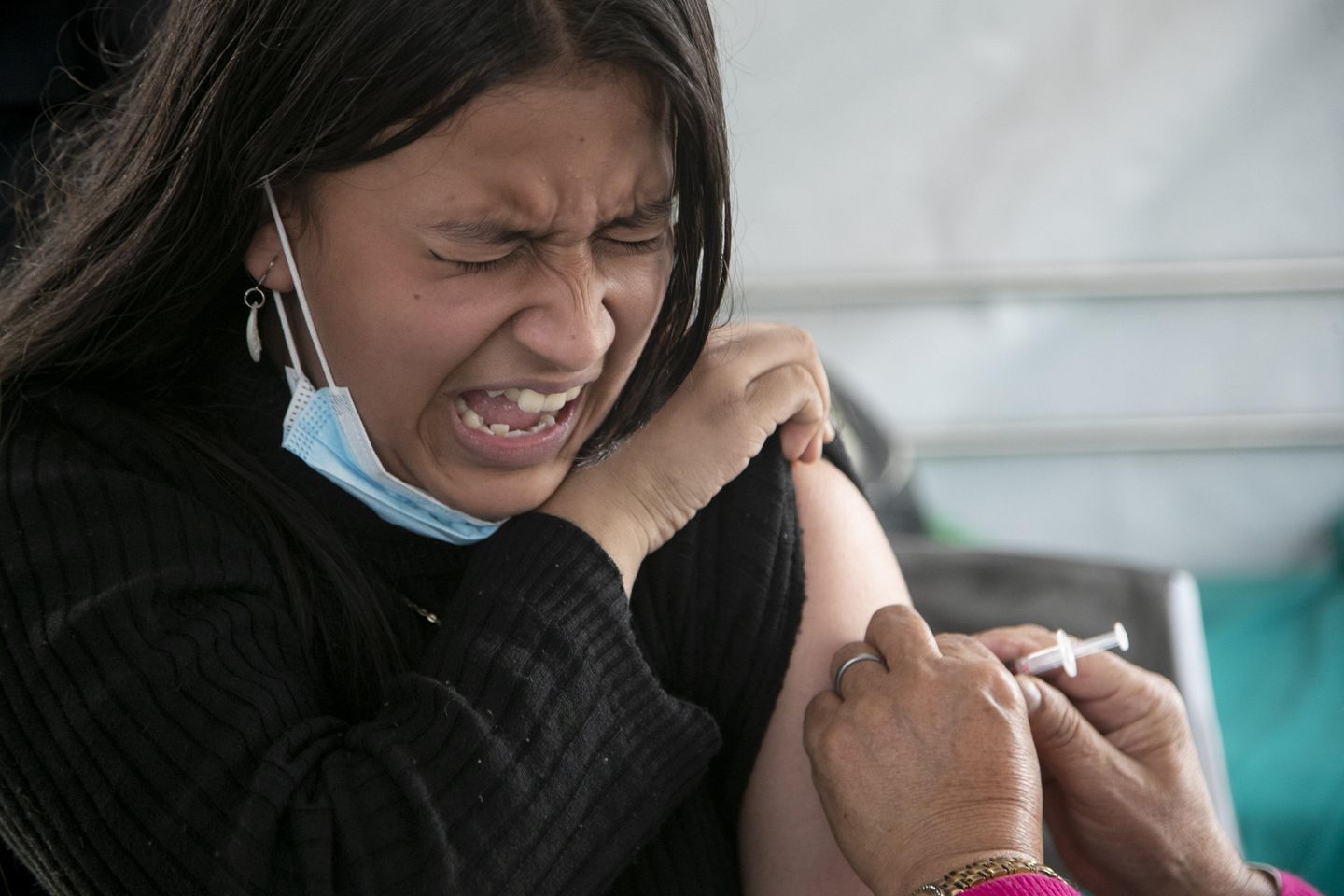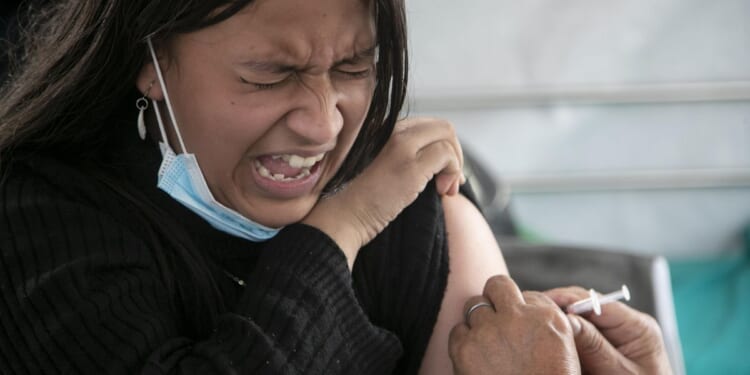
Babies and toddlers up to 5 years old experienced “modest” developmental delays during COVID-19 pandemic lockdowns, according to a federally funded study.
Led by Johns Hopkins Children’s Center researchers, the study analyzed data on 52,205 children for links between pandemic disruptions to everyday life and changes in development. Parents completed digital surveys through more than 5,000 pediatricians’ offices before and after public health restrictions began in March 2020.
Investigators found drops of between 2% and 3% in communication, problem-solving and interpersonal skills during the lockdowns, but no changes in fine or motor skills. They published their findings Monday in JAMA Pediatrics.
Sara Johnson, a co-author and pediatrics professor at Johns Hopkins Children’s Center, said the study is the biggest ever conducted on child developmental milestones during COVID. Funding came from the Johns Hopkins Population Center and a grant from the National Institute of Child Health and Human Development.
“We do see that children ages 5 and younger lost some ground in terms of developmental milestones during the pandemic, but those changes appear to be small,” Ms. Johnson told The Washington Times. “That should be reassuring for parents and caregivers.”
While the slight impact of pandemic restrictions on early childhood development is “reassuring in the short term,” the study noted that it “may tax an already overburdened developmental behavioral pediatrics infrastructure” as long-term effects emerge later in life.
“Given that, it’s possible new challenges might show themselves when children are called on to use new skills, for example, when they go to kindergarten,” Ms. Johnson added.
As the parents of young children worked from home during the pandemic, the researchers noted that many experienced increased stress, anxiety and social isolation as outside activities got canceled.
Comparing developmental scores before and during the pandemic from 2018 to 2022, investigators found communication skills dropped by roughly 3%, problem-solving skills by about 2% and personal-social skills by around 2%.
However, only two scores declined among infants up to 12 months old: communication (about 3%) and problem-solving (about 2%) skills.
The investigators noted that the study may have underestimated the developmental impacts since it did not account for prenatal substance abuse, other adult health problems or the developmental performance of preterm infants.
They also noted a possible “selection bias” among pediatricians participating in the surveys and the unavailability of a comparison group of children not exposed to COVID-19 restrictions.
Reached for comment Monday, some health experts not connected to the study offered mixed reactions.
“There’s no such thing as a ‘modest’ developmental delay when it’s your child who was deprived of seeing faces, moving lips, smiles and kisses under frightening and ineffective masks worn by daycare workers,” said Katy Talento, an epidemiologist who served as President Donald Trump’s top health adviser before the pandemic. “The authors of this study appear to be trying to reassure parents that the trauma imposed by their unscientific, authoritarian governments was no big deal.”
Laura DeCook, the California-based founder of mental health education company LDC Wellbeing, said the findings show infants and toddlers are “more resilient to changing circumstances” with parents at home.
“Even though social interactions outside of the home were limited during this time, increased time with the child’s caregivers could have helped mitigate these issues,” said Ms. DeCook, who leads mental health workshops for families. “With parents and caregivers working at home, infants and toddlers most likely received more attention and interaction, which can positively impact a child’s development.”
According to study co-author Ms. Johnson, the 2% to 3% declines in developmental skills during pandemic lockdowns were equivalent to “about 1,500 children each month potentially being referred to a developmental specialist for further evaluation.”
She said the researchers “don’t know for sure” why small children were not more affected.
“Interestingly, these are areas of development that children practice through interacting with others,” Ms. Johnson said. “So these outcomes might be influenced by caregiver stress during lockdowns, childcare closures, and social distancing. On the other hand, we didn’t see any differences in gross or fine motor development, which don’t rely so much on interactions.”
For more information, visit The Washington Times COVID-19 resource page.












